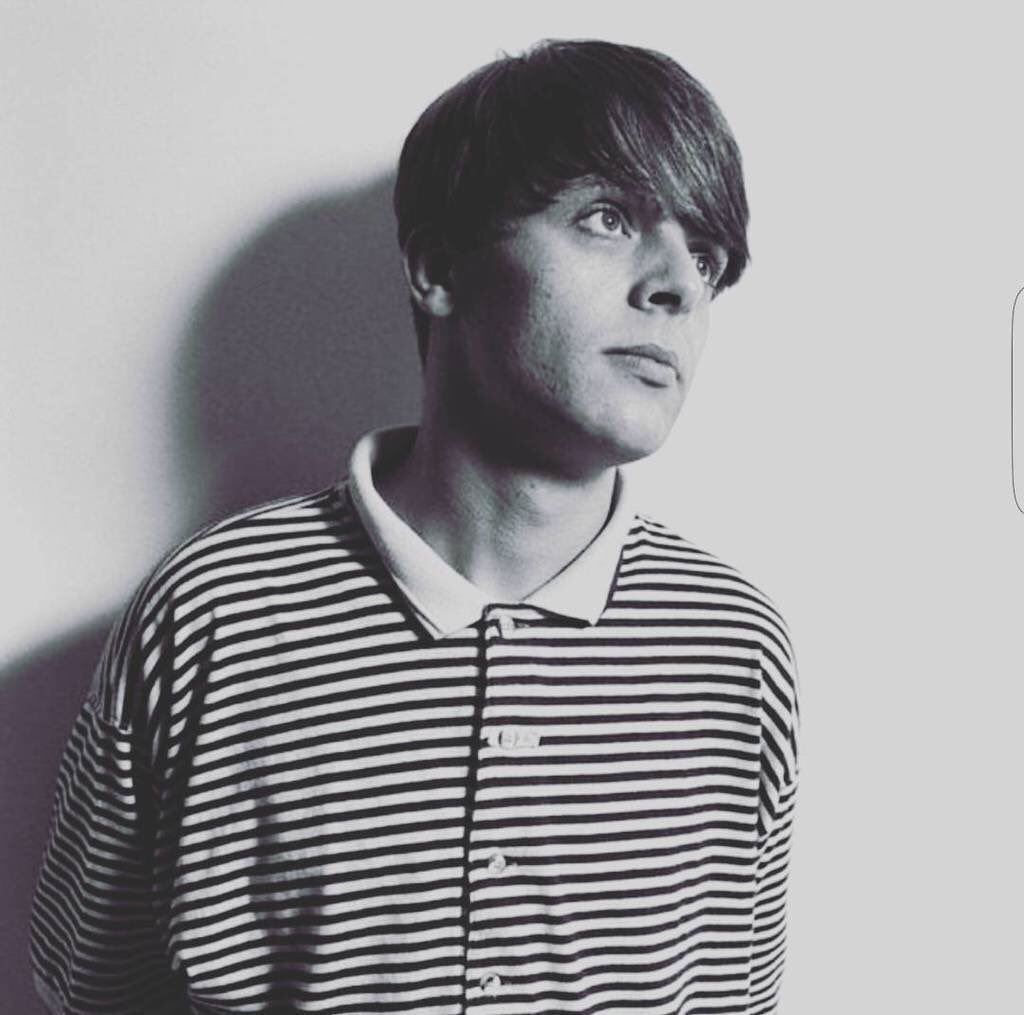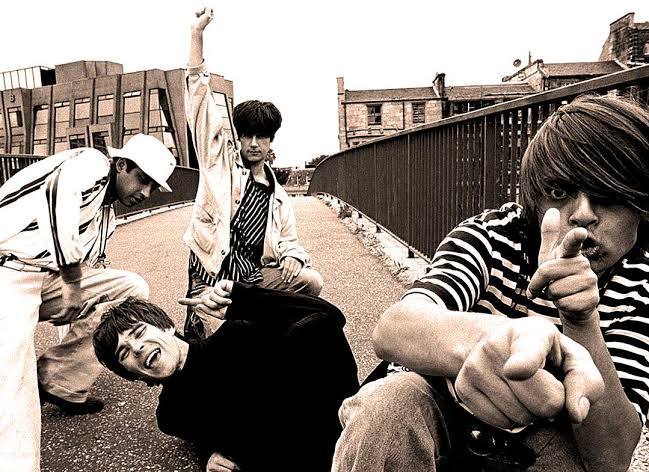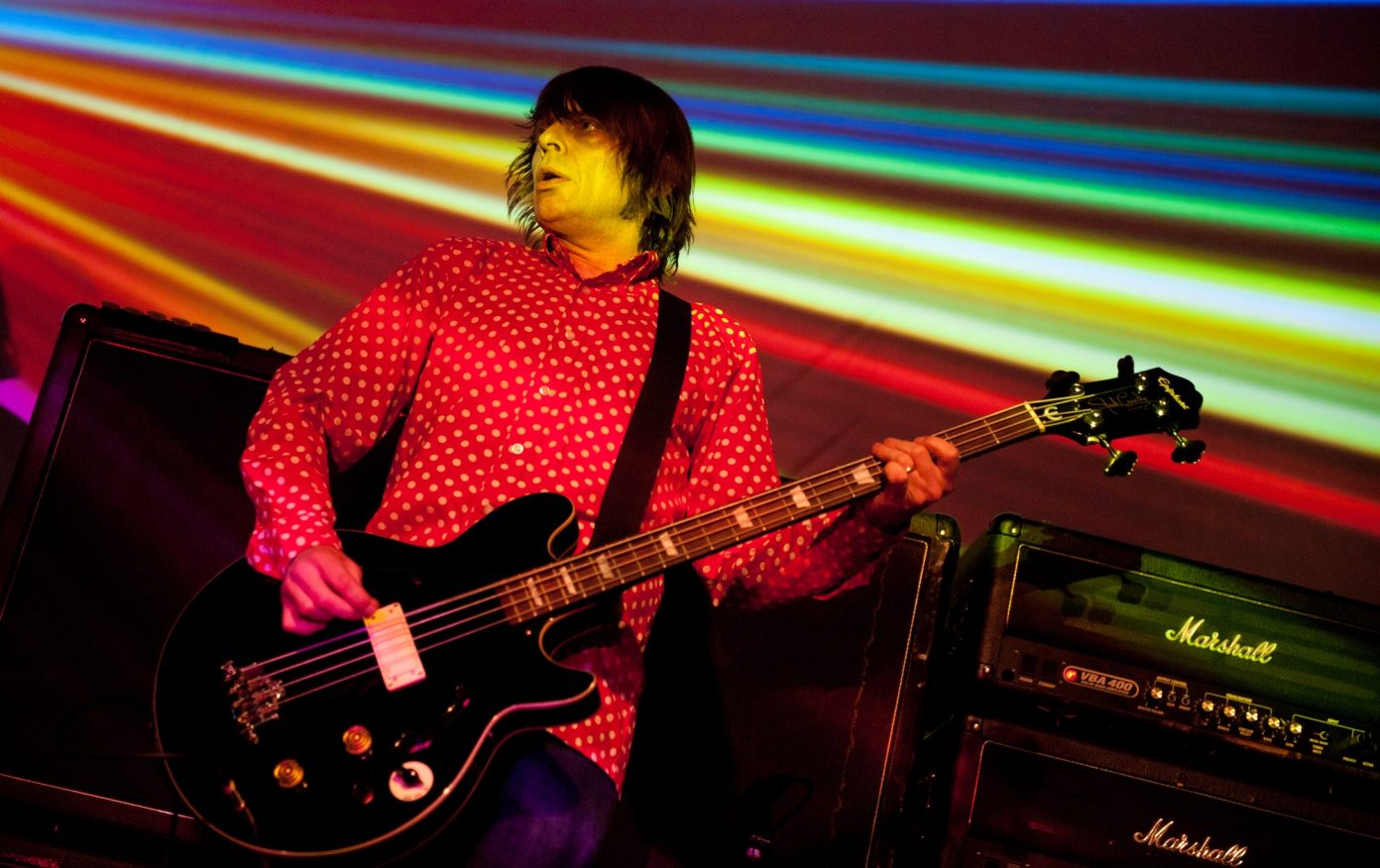Gary 'Mani' Mounfield: 1962-2025

It feels like in the last couple of years, the world has lost some huge names from the world of music. Andy Rourke, Sinead O Conor, Rick Buckler, Taylor Hawkins, Ozzy Osbourne. Yesterday (20th November 2025), the family of the much-loved Manchester bass player Gary 'Mani' Mounfield had announced that he'd passed away.
Best known for his role in the seminal Manchester band The Stone Roses. His bassline is the first thing you hear on the bands debut record, gliding across the cosmic plain of 'I Wanna Be Adored' and on the albums last track 'I Am the Resurrection' he gives a nod to arguably the most iconic band ever, by playing 'Taxman' backwards before shifting into loose limbed funk, working around the chiming guitar of John Squire, the pulsating drums of Ian 'Reni' Wren, and the otherworldly statement of intent vocals from Ian Brown.
He'd help defy a scene, cause his hometown to get a new name, Manchester became Madchester, and his basslines led indie kids to the dancefloor. A childhood growing up to Northern Soul and Funk gave The Roses their groove, alongside Reni, they formed arguably the greatest rhythm section of a British band ever. “When Mani joined, it almost changed overnight,” Ian Brown said. “It became a totally different groove…Straight away, everything just fell into place.”
Both weighty and melodic, Mani’s bewitching basslines became the bedrock and, often, the driving force of The Roses’ breakthrough tracks ‘Elephant Stone’, ‘Made Of Stone’ and ‘She Bangs The Drums’ and 'I Wanna Be Adored'. He would become the main reason guitar bands would become obsessed with making kids dance.

Following the debut album’s Top Five success came The Stone Roses’ cultural coronation: the so-called “baggy Woodstock” at Spike Island in 1990.
Spike Island itself was a reclaimed chemical waste site in Widnes. To outsiders, it may have seemed an odd, even reckless choice. But within the context of Britain’s burgeoning rave culture, it made perfect sense. This wasn’t just a concert; it was a celebration of music, of a culture, of a moment suspended in time. It hinted at the end of Tory rule, heralded the rise of rave culture, and gave those now-iconic songs an almost mythic platform.
Thirty thousand fans descended on the windswept banks of the Mersey Estuary that windswept bank-holiday weekend, each paying £14 for the chance to witness what had been hyped as the gig of a lifetime. The setlist overflowed with fan favourites, and the air crackled with anticipation. For some, the experience was transcendent—an almost spiritual convergence of sound, youth, and rebellion. For others, the open-air acoustics and swirling wind dulled the impact.
But the details hardly mattered. Spike Island was never about flawless sound or technical precision; it was about what the event meant. It was the merging of worlds: indie and acid house, guitars and turntables. A euphoric stance against the fading grip of Thatcherism
Following Spike Island, the band would become entangled in legal wrangles with label Silvertone, which kept the band from releasing any new material for several years following the 1990 ‘One Love’ single. It was Mani’s dense, funky bass which provided the major through-line to their second album ‘Second Coming’ in 1994: a record otherwise dominated by Squire’s more blues rock tendencies.
In the fallout which followed, culminating in a notoriously poorly-received headline set at Reading Festival in 1996, Mounfield was Brown’s only permanent ally in the band as Squire and drummer Alan “Reni” Wren departed.
After leaving The Roses following the bands split in 1996, he'd go on to join Primal Scream, one of just three bands he’d claim to be willing to join (the others being The Jesus & Mary Chain and Oasis), becoming the core of the bands highly acclaimed and influential future rock rejuvenation with 1997’s ‘Vanishing Point’ and 2000’s ‘XTRMNTR’. Mounfield’s upbeat attitude and musical energy have been credited with reviving the band, amid talk of splitting after the disheartening and drug-heavy experience of ‘Give Out But Don't Give Up’.

Across 15 years and five albums with Primal Scream, Mani acted as Bobby Gillespie's right-hand man, and even found time to for in stints stints with bass-player supergroup Freebass alongside New Order’s Peter Hook, The Smiths’ Andy Rourke, and Haven’s Gary Briggs, tours with Ocean Colour Scene, and guest appearances at Ian Brown solo shows.
In 2011, he reunited with The Stone Roses, playing huge festival shows and stadiums. Continuing to do this until the bands break up in 2017. The reported reason for the reunion had been Mani, he met up with Brown and Squire at his mother’s funeral in 2011. He commented that the event was “the cloud that gave us the silver lining” to patch up their differences.
Upon hearing the news, the world of music took it upon themselves to pay tribute to the band. Ian Brown, The Stone Roses frontman, led the tributes. While The Stone Roses also shared a tribute from their official account, writing: “RIP our wonderful brother Mani. The greatest bass player and friend we could ever have wished for.”
There were so many more tributes from music legends. Courteneers’ Liam Fray shared a similarly heartfelt tribute, writing: “Absolutely devastated to hear the news about Mani. This is what true sadness feels like. Everyone who knew you will miss you so much. Thank you for the good times; every one of them was a privilege. Thinking of all your family and friends. Rest in Peace, Brother.”
Emily Eavis took to Instagram to share some memories of Mani.
Members of Oasis, posted. Bonehead with a simple message. Liam Gallagher wrote that he was “in total shock” and “absolutely devastated”. With Noel writing, "RIP Brother. It was a pleasure to have known you."
There were so many tributes to the man, from so many musicians. Courteeners, Blossoms, Echo & the Bunnymen, New Order, Happy Mondays, The Charlatans, Reverend & the Makers, The Farm, Richard Ashcroft, Johnny Marr, Elbow, The Coral.
A full list of tributes can be found here. The most amazing tributes and stories, though, came from fans, people who had met him at the football, in pubs at gigs. What struck me most yesterday, reading the tributes, is just what a brilliant man he was. People shared stories about how they'd met him at gigs and spoke to him, those who met him at Old Trafford and Manchester United away games, and new bands who got advice from him. The stories and tales of the man were amazing to read.
Away from being an unbelievable bass player, he sounded like an exceptional human being, a loyal friend, a proud father, and a loving husband.
Musician deaths have hit me before; Ozzy Osbourne, for example, was a cultural phenomenon, and I remember having a feeling of sadness aged sixteen when I found out Bowie had passed.
This one felt different, though. The Stone Roses are one of the most important discoveries in my life; those songs mean the world to me. The band's debut record remains a cornerstone of my record collection. As Clash Magazine put it, the album remains “an overwhelming statement of working-class pride.” It wasn’t music for the elite or the critics; it was for the dreamers, the ravers, the disillusioned youth looking for meaning and escape.
The impact of that band on me cannot be understated. Without The Stone Roses. I'm not writing this post; Beyond the Grooves does not exist.
My thoughts are with those who knew him, his family, and friends. His twin sons Gene and George, and for all of those who were affected or touched by Mani and the music he left behind.
He sounded like one of the good guys, a true one of. A hero and friend to many.
R.I.P. Mani